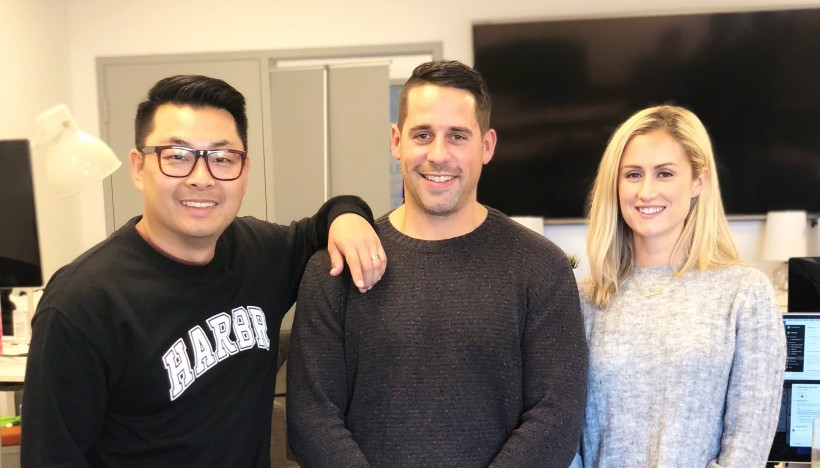When Halifax-based Harbr announced its $1.75 million funding round in March, there were some unexpected names on the list of investors.
The company, which is developing an artificial intelligence product for the construction industry, said the co-lead was Halifax developer George Armoyan, whose interests include Geosam Capital and Clarke Inc. Other investors included such construction industry leaders as Don Clow of Crombie REIT, Jim Spatz of Southwest Properties, and Victor Kielbratowski of Halifax-based Kiel Developments.
The Harbr funding exemplified a trend that’s taking place in the Atlantic Canadian economy: traditional businesses and startups are getting to know each other. Until recently, there was limited interaction between the two groups, but that’s changing.
And that is important for two reasons. First, it means that startups in the region are benefitting from exposure to the brains and back pockets of the most successful business people in the region. The second reason might have an even greater economic impact. The region’s traditional industries are learning the benefits of innovation and spending more on R&D, a trend that is boosted by their relationships with startups.
“Atlantic Canadian business needs to get more involved in corporate innovation,” said Jeff Larsen, Executive Director of Innovation, Creativity and Entrepreneurship at Dalhousie University. “There have been exemplars such as McCain’s investment and procurement from precision agriculture startup Resson, but not enough to help traditional companies adapt and adopt innovation in response to global competition.”
East Coast Startups Tapping Accelerators Outside the Region
There is a general agreement among startup specialists that Atlantic Canada has many of the components of a successful ecosystem, like universities, funding organizations and abundant mentorship. One missing piece, however, has been the “tent-pole industries”, to use the term coined by Colorado startup guru Brad Feld. The idea is that huge corporations bring expertise to a region. Their employees get business ideas and break away to start their own companies. The big corporations become clients and mentors for startups, and maybe work with local universities on research, all of which contributes to the support system.Our problem is Atlantic Canada’s private sector is small as a proportion of the overall economy, meaning there aren’t a lot of companies, let alone big ones. Now several forces are coming together to encourage the corporations we do have to work with startups.
One is Creative Destruction Lab Atlantic. The East Coast offshoot of a program developed at University of Toronto is bringing traditional business people into the startup space by having them mentor and invest in young companies. Its fellows include such corporate veterans as IMP Chairman Ken Rowe, Clearwater Fine Foods Chairman John Risley, Armoyan and others.
“This CDL is probably one of the best ideas that I’ve ever seen come to Halifax,” said Armoyan, who actually linked up with Harbr through CDL. “The amount of time being committed to the space – it’s really impressive. These are people are really busy but they’re all making time for this.”
Of course, there are other examples of involvement. McCain Foods of Florenceville, NB, has become an increasingly active investor in and partner with startups. And Risley has become a super angel. Since his company Ocean Nutrition Canada exited for $540 million in 2012, he has become a major investor in such high-flying companies as Proposify and Kinduct.
One Startup Player To Watch in 2019: McCain Foods
Volta, the Halifax startup and innovation hub, is growing its Innovation Outpost, where large companies and organizations can set up innovation teams to work on special projects. So far, Atlantic Lottery Corp., Accenture and the Government of Nova Scotia have enrolled in the Innovation Outpost.
What’s interesting is that these links to startups are growing as Atlantic Canada overall is becoming more innovative, after lagging the continent for generations. It’s difficult to establish cause and effect, but maybe the startup ethos is rubbing off on the older industries. Whatever the reason, statistics are showing that R&D is increasing in the region.
Statistics Canada said in October that the innovation rate (a measure of the proportion of companies engaged in R&D) of Atlantic Canadian enterprises increased from 45.8 percent in 2010-12 to 69.1 percent in 2015-17. This means that, within these time bands, the innovation gap between Atlantic Canada and Canada overall has shrunk from 17.7 percentage points to 10.2 points.
Said Larsen: “In the end, it will be the irresistible pressure coming from the global marketplace that will force Canadian, and certainly Atlantic Canadian, companies to become more innovative and, in many cases, to give much greater priority to R&D and collaboration with university-based researchers.”










